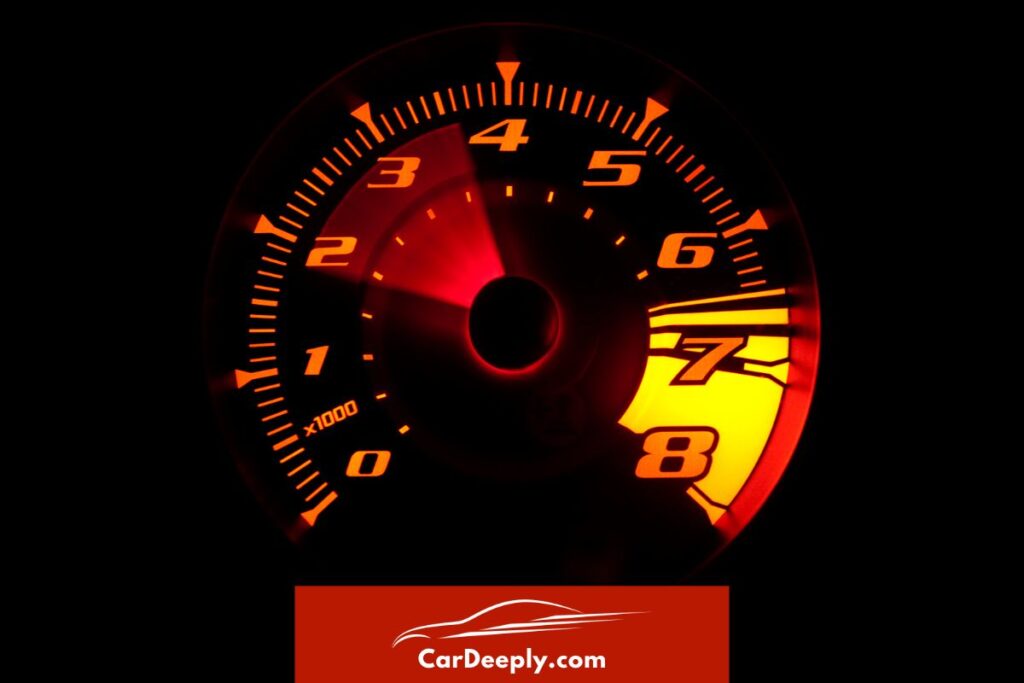Have you ever wondered how long you should rev your engine to charge your battery? If so, know that you’re not the only one.
This common question has many drivers scratching their heads.
In this comprehensive guide, we’ll debunk myths, provide practical advice, and offer quick tips to help you navigate this issue. You’ll discover:
- The science behind revving and charging
- The right way to charge your battery
- Potential risks and how to avoid them
So, buckle up, and let’s dive into the world of car batteries and engine revving!
Advertising links are marked with *. We receive a small commission on sales, nothing changes for you.
Key Takeaways

- The alternator, driven by the engine, charges your car battery.
- Revving the engine can increase the alternator’s output.
- The battery’s state of discharge affects the charging speed.
- Accelerating during a jump-start can provide extra power.
- Excessive revving can damage the engine.
Understanding the Basics of Car Battery Charging
Let’s kick things off by getting to grips with the basics of car battery charging. Have you ever heard of an alternator?
It’s the unsung hero of your car’s electrical system, tirelessly working to keep your battery charged. When your engine is running, the alternator generates electricity, which is used to power your car’s electrical systems and recharge the battery.
Now, what about the engine’s role in all this?
The motor drives the alternator, which means the faster your engine runs, the more electricity the alternator produces. This is where the concept of revving the engine comes into play.
Does Revving the Engine Charge Your Battery Faster?
So, you’re probably wondering, “Does revving the engine charge the battery faster?” Well, it’s more complex than you might think.
Technically, revving the engine does increase the alternator’s output. But here’s the catch – your battery’s discharge state plays a crucial role. If your battery is deeply discharged, revving the engine could speed up the charging process.
But revving might not make a significant difference if your battery is only slightly discharged.
There are times when revving the engine makes sense. For instance, if you’re trying to jump-start another car, revving your machine can help generate the extra power needed. But remember, it’s not a one-size-fits-all solution. Always consider the state of your battery before hitting that gas pedal.
In the next part, we’ll delve deeper into the role of revving during a jump-start and the potential risks you must be aware of. So, stay tuned!
Revving the Engine During a Jump-Start
Alright, let’s dive into the nitty-gritty of revving during a jump-start. It’s a common scenario: you’re trying to help a friend whose car battery has died.
You connect the jumper cables, start your engine, and then… should you rev your engine?
For the Car Giving the Jump-Start
If you provide the jump-start, revving your engine can be beneficial. It increases the alternator’s output, providing more power to help start the other car.
But remember, don’t go pedal to the metal!
A gentle rev will do the trick.
For the Car Receiving the Jump-Start
On the flip side, revving is optional if you receive the jump-start. Once your car starts, let it idle for a few minutes. This allows the alternator to recharge the battery and the surface charge to build up.
Potential Risks and How to Avoid Them
Now, let’s talk about the potential risks of revving your engine. Yes, it can help charge your battery faster, but it’s not without its dangers.
Potential Engine Damage
Revving your engine too hard or too often can cause damage. It can lead to overheating, especially if your engine oil isn’t circulating properly. So, always keep an eye on your engine temperature.
Safe Ways to Rev the Engine
If you need to rev your engine, do it safely. Here are a few tips:
- Warm up your engine first
- Don’t rev too hard
- Let the engine idle afterward
Remember, safety comes first!
Frequently Asked Questions
Can I damage my car battery by revving the engine too much?
Yes, excessive revving can damage your car battery. Over-revving can cause the alternator to produce too much electricity, which could overcharge and damage the battery. Always remember to rev your engine moderately and responsibly.
How can I tell if my car battery is fully charged?
A fully charged car battery should read around 12.6 volts or higher. If it’s lower, your battery might not be fully charged. You can use a multimeter to check the voltage of your car battery.
What should I do if my car battery keeps dying?
If your car battery keeps dying, it might be time for a replacement. But before you do that, check for any electrical issues or parasitic drains that might be causing the problem. It’s best to consult with a professional if you need more clarification.
Can I charge my car battery without revving the engine?
Yes, you can. Your car battery will charge whenever the engine runs, regardless of whether you’re revving it. However, revving can increase the alternator’s output and speed up the charging process.
How long does driving take to charge a car battery?
It can take several hours of driving to charge a car battery fully. The exact time can vary depending on the state of discharge of the battery, the power output of the alternator, and how much electricity the car’s electrical systems are using.
Conclusion
We’ve covered the basics of car battery charging, the role of revving, and the potential risks involved. With this knowledge, you can handle your car battery like a pro.
So, next time you’re faced with a dead battery, you’ll know exactly what to do.

Sebastian loves convertibles and drove a BMW 335i for a long time (325 hp is just a dream). Today, with two children, he is more concerned with SUVs and family-friendly vehicles. In addition to an Audi A4 Avant, he also drives a Cupra Formentor VZ – even as a family man, you can’t do without speed. Get to know Sebastian better and visit the About Us page.
Advertising links are marked with *. We receive a small commission on sales, nothing changes for you.

